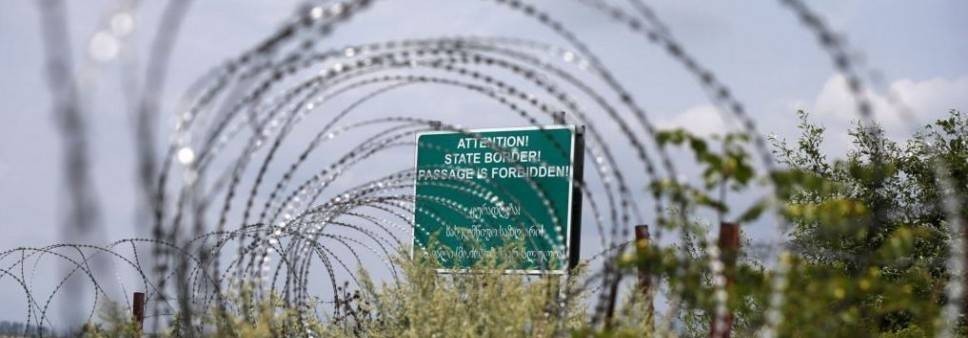საერთო ცხელი ხაზი +995 577 07 05 63


Civil Society Organizations respond to general and blanket restriction imposed by Security Services with regard to access of media, civil society and political party representatives to villages adjacent to occupied Tkhinvali region/South Ossetia and urge the Government to change the movement regime, which contradicts human rights standards.
For almost a year, since August 30, 2019, media, civil society, and political party representatives have not been allowed to move through and work in the villages adjacent to occupied Tkhinvali region/South Ossetia. The restrictions of access also apply to those villages, which Georgia has full control over, e.g. the villages of Gugutiankari and Zardiantkari, where occupation barriers and barbed wire fences are situated, it is also impossible to enter the villages of Karbi and Mereti controlled by Georgia, as the Georgian border checkpoint is located before the village Karbi. Same applies to the village Ditsi and Khurvaleti. There is a settlement of Internally Displaced Persons (IDPs) from Khurvaleti before the village of Khurvaleti, access to which is also restricted for civil society and media, as the Georgian checkpoint is 4-5 km away from there.
Since August 30, 2019, only two cases have been identified when journalists were admitted up to barbed wire fences under police escort, once before autumn 2019 in Gugutiankari during new incidents of the creeping occupation and the second time in the village of Atotsi. In both cases, journalists managed to report about the new processes of occupation under police escort from a 20-meter distance. It is also noteworthy that restriction of movement for the civil society and media coincides with the political tension related to the opening of a border checkpoint in Chorchana, however, the area of restriction of movement is much larger than the Georgian border checkpoint in Chorchana.
In other cases, Security Services did not allow media, civic activists, and political parties, despite their multiple attempts, to access even those villages, which are not situated near the occupation line. The established practice of restrictions impedes their public activities and restricts gathering and dissemination of information. While information about developments in the occupied territories and adjacent villages is already restricted, these barriers further block access to information. These restrictions also impede study of social and human rights situation in the villages adjacent to the dividing line and raising those issues publicly. It is noteworthy that journalists were denied access to the villages under Georgian control even with police escort. State representatives justify these restrictions on the basis of security concerns, namely, to prevent provocations near the occupation line and to protect security of media and civic activists. However, indication of security concerns in this situation, when hundreds of people live in these villages, is dubious.
Due to security concerns there may exist a legitimate ground for restricting movement or freedom of expression. However, restriction of these rights is subject to strict scrutiny, requires indication of a pressing social need and needs to be in accordance with law. Blanket and general restrictions are impermissible without indication of individual risks and substantiation. In this case, both legality and proportionality of the restrictions are ambiguous. In accordance with international human rights law, scope of interference with freedom of movement needs to be foreseen in the law and comply with the necessity test, which indicates protection of rights of others, national security, public order, health or morals as legitimate grounds of restriction. Identical test of necessity applies to restrictions of freedom of expression and information. The UN human rights committee explains that restrictions imposed on freedom of expression shall not threaten this freedom itself. As the committee explains, burden of proof regarding legitimacy and necessity rests with the state when restrictions on freedom of expression and information are imposed.[1] The state is obliged to select the least intrusive instrument for the restriction to be justified. The principle of proportionality has to be respected not only in the law, but also by the administrative and judicial authorities in applying the law. On the basis of these standards, it needs to be noted that the restrictions imposed in these circumstances are not legally defined, nor are standards of necessity and proportionality observed.
Considering the above, we urge the Government of Georgia:
Signatory Organizations:
[1] Human Rights Committee, General Comment No. 34, para 34.
The website accessibility instruction